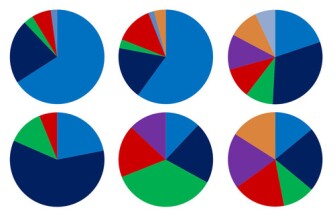
Nearly all teachers regularly use digital tools to inform their instructions, but most are unhappy with the quality of data or the data tools they have access to, according to a survey report released this week by the Bill and Melinda Gates Foundation.
Ninety-three percent of the more than 4,600 teachers surveyed for the report, Teachers Know Best: Making Data Work for Teachers and Students, said they use digital tools, like a digital gradebook or Excel spreadsheets, mixed with non-digital tools when teaching. But 67 percent of those teachers said they aren’t fully satisfied with the effectiveness of the data they receive from such tools.
The original Teachers Know Best report, released in 2014, shared detailed information on how digital instructional tools are used in classrooms with educators and product developers. This follow-up study focuses on “the potential of a specific subset of digital instructional tools: those that help teachers collect and make use of student data to tailor and improve instruction for individual students.”
The Gates Foundation (which provides support to Education Week for its coverage of college and career ready standards) has been an influential proponent of the use of data to improve instruction.
But its new report finds that many teachers say that the data mechanisms currently available in many schools can distract from student learning instead of benefitting it:
- Teachers feel flooded: "[They are] overwhelmed by the volume of data, worry that the data lack the detail required to address the needs of individual students, and believe that the laborious effort required to pull data together for analysis takes time away from teaching and learning.”
- Educators want guidance, not just numbers: “Single points of data reduce students to a test score instead of revealing trends about their progress that teachers care about.”
- Teachers want nuance: "[They want] academic, social, behavioral, and cultural experiences that can help strengthen the connection between teachers and students and shape how learning takes place.”
Still, 91 percent of surveyed teachers say data and digital tools are important to seeing how a class is doing, while nearly 8 in 10 said that data can help track students’ progress.
In addition, 61 percent of surveyed teachers said digital tools and the data that comes from them make them better teachers.
The report also found that the school environment also affects how technology is supported. The number of “data mavens"—educators who are eager to adapting instruction to the data they have to support the whole student—is 15 percentage points higher in “tech-forward” schools than in those categorized as more traditional. By the same token, the survey found that nearly half of teachers are still “uncomfortable using digital tools to help students meet learning objectives.”
The report recommends that product developers create “developing tools that do not just report what has happened, but also use current and historical performance data to anticipate student learning trajectories and personalize instruction based on each student’s performance.”
The report adds that product developers need to listen to teacher and other educators when making new technologies and that teachers should work together to share expertise and best practices on data analysis and use.
Image: What does it all mean? Credit: Ross Brenneman
More on technology and digital tools in the classroom:

